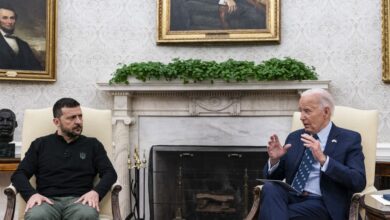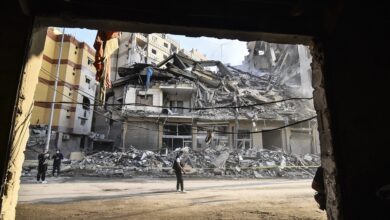US begins talks with Houthi rebels in bid to end Yemen’s civil war
An American official told AFP on Thursday, September 5 that the United States is in talks with Yemen’s Houthi rebels in an effort to end the country’s four-year civil war.
“We are narrowly focused on trying to end the war in Yemen,” Assistant Secretary of Near Eastern Affairs David Schenker told reporters during a visit to Saudi Arabia.
“We are also having talks to the extent possible with the Houthis to try and find a mutually acceptable negotiated solution to the conflict.”
The talks mark the first known contact between the Trump administration and the Houthi rebels, who took over much of Yemen’s north from the government of President Abd Rabbo Mansour Hadi in 2015.
Last week, The Wall Street Journal reported that U.S. officials were planning to encourage Saudi Arabia to take part in secret talks with Houthi leadership in Oman to broker a ceasefire.
Senior Houthi official Hameed Assem told AFP he could neither confirm nor deny the rebels were in talks with Washington.
“That the United States says they are talking to us is a great victory for us and proves that we are right,” Assem said.
The Wall Street Journal reported last month that Washington was preparing for direct talks with the rebels and that its negotiating team would be led by Christopher Henzel, who became the Trump administration’s first ambassador to Yemen in April.
A State Department official said Thursday that “the US ambassador to Yemen and other US diplomats talk to all Yemenis to further US objectives in the country”.
“We are focused on supporting a comprehensive political agreement that will end the conflict,” the official said.
The Saudi-led coalition against the Houthis, which consists of Yemen’s government and southern forces including the Southern Transitional Council – primarily backed by the United Arab Emirates – has begun to fracture as Saudi Arabia and the UAE have signaled fatigue over the conflict.
Last month, members of the Southern Transitional Council seized the de facto capital of Aden from pro-government forces and demanded southern secession, opening a fissure within the Saudi-led coalition and leading to fears that the already dire civil war could unravel into a more complex conflict.
Parts of Aden have changed hands multiple times between the two sides as Saudi Arabia and the UAE have attempted to patch up the divide.
The UAE has denied it supports southern separatists’ ambitions.
Tens of thousands of people have been killed in Yemen’s civil war, and millions face the threat of starvation. United Nations investigators this week said various parties in the conflict may be complicit war crimes, including targeting civilians with airstrikes, artillery and snipers, arbitrary detentions and killings, torture, sexual violence, and impeding access to humanitarian aid.
The U.N. report warned the U.S., United Kingdom, France and Iran of possible complicity if they continue to arm actors suspected of war crimes.
With reporting from AFP
This post was updated on September 5 to include a quote by Hameed Assem.












